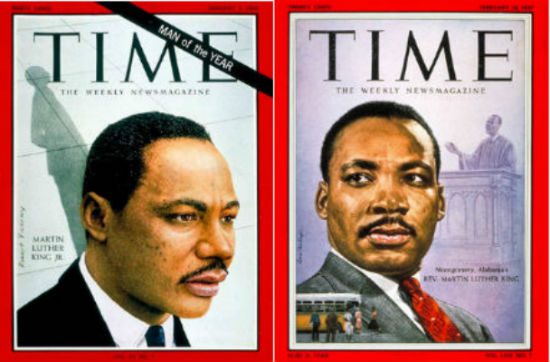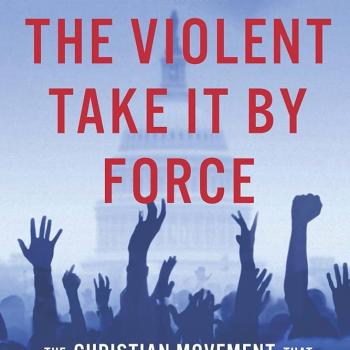Alan Jacobs’ “The Watchmen: What became of the Christian intellectuals?” is a splashy new entry in the long line of “Who will be the next Reinhold Niebuhr?” pieces.
The oddest thing about Jacobs’ essay is the ghostly presence — and tangible absence — of Martin Luther King Jr.
King’s influence, words, and ideas flit about the edges of the essay as an assumed, if undefined, pillar of our shared cultural and intellectual heritage. Would-be candidates for the role of “Christian intellectuals” like Richard John Neuhaus and Cornel West are evaluated, in part, for their ability to contend with and to comprehend the ideas and ideals of King. But while he is deferentially regarded as a kind of measuring stick for the legitimacy of any Christian public intellectual who came after him, King himself is never treated as a legitimate candidate for that position.
When looking for the next Niebuhr, or for the next nationally influential Christian public intellectual, for some reason, Martin Luther King Jr. doesn’t count.

This is never explained. We can guess at one very bad reason for why this might be so, but I suspect it’s due to another, slightly less-bad reason. I’m guessing it’s because Jacobs doesn’t think King fits neatly into the standard mold for what he imagines a “Christian intellectual” should be. He was certainly an influential Christian public intellectual. His influence — intellectually, legally, culturally, theologically — cannot be denied. And he was thoroughly Christian and thoroughly public. And it’s obvious that Jacobs appreciates King’s contributions as an intellectual (hence his presence in the essay as a comparison for Neuhaus and West).
But King was not a “Watchman” — a detached observer and commentator ruminating on the state of American culture from somewhere off to one side. He stood in pulpits and he marched in the streets. He was arrested 30 times. This isn’t what we expect our “intellectuals” to look like. They’re supposed to be bookish, middle-aged, tenured professors best known for writing long, admired books and articles in prestige journals. I mean, that’s what intellectuals do, right? They publish long essays in Harper’s, not epistles scrawled on the margins of a newspaper and scraps of paper smuggled into a jail cell.
Jacobs thus concludes (or presumes) that King doesn’t fit the standard model of what a Christian public intellectual should be. An alternative conclusion might be that King’s life and legacy revealed the limits of that standard model to such an extent that it no longer seems like a necessary pursuit.
We don’t need to keep asking “Who will be the next Reinhold Niebuhr?” The answer to that question is Martin Luther King Jr. And that answer also means that we should no longer be looking for “the next Niebuhr.” We should be looking for the next King.
















